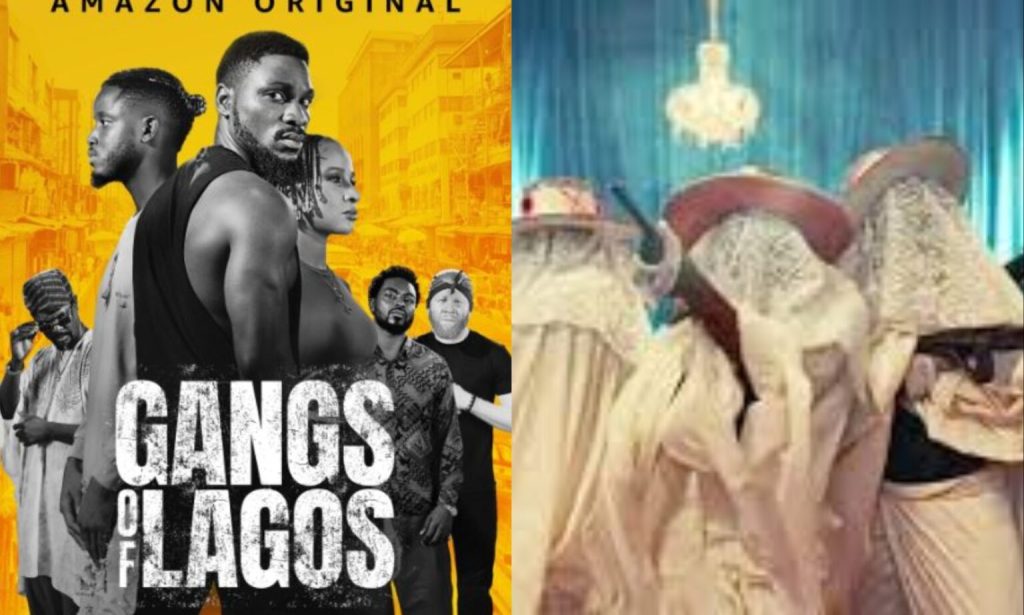
A Lagos High Court sitting in Tafawa Balewa Square has halted the public viewing and streaming of the controversial film Gangs of Lagos, following a legal challenge by the Isale Eko Descendants Union.
Justice Idowu Alakija delivered a consent judgment in favor of the applicants, ruling that the movie misrepresented and disrespected the cultural heritage of the revered Eyo Masquerade and the peace-loving traditions of the Isale Eko community.
The judgment came after an agreement was reached in the lawsuit LD/6903GCM/2023, filed by the Isale Eko Descendants Union and two others against Amazon Web Services and 11 other respondents.
Court Orders Apology from Filmmakers
The court directed the defendants—including the film’s producers and Amazon Web Services—to issue an unreserved apology acknowledging that Gangs of Lagos wrongly depicted the Eyo Masquerade and the Isale Eko community.
“The 3rd to 11th respondents shall jointly issue a letter recognizing the applicants’ position that the movie Gangs of Lagos erroneously portrayed and disparaged the cultural heritage of the well-respected Eyo Masquerade, as well as the peace-loving nature and long-standing traditions of the Isale-Eko people, and shall therein tender an unreserved apology,” the judgment read.
Additionally, Amazon Web Services Nigeria Limited was instructed to issue a separate letter of apology on its official letterhead.
Legal Battle Over Cultural Representation
The case was initiated by the Isale Eko Descendants Union, represented by its Chairman, Adeniyi Kazeem (SAN), alongside Chiefs Ayodele Bajulaiye and Abdul-Waheed Ayeni, who sued on behalf of their respective chieftaincy families.
They had accused the film’s producers of portraying Isale Eko as a criminal stronghold and depicting the Eyo Masquerade as violent assassins. The applicants sought an outright ban on the movie and demanded accountability for its streaming revenue.
The lawsuit listed several defendants, including Lagos State’s Attorney General, the Lagos State Film and Video Censors Board, filmmaker Jadesola Osiberu, actors Bankole Wellington (Banky W), Adesua Etomi-Wellington, and other key figures involved in the film’s production and distribution.
Beyond halting the film’s streaming, the applicants also sought a N10 billion fine against the defendants for what they described as an illegal and defamatory depiction of their community.
Victory for Cultural Rights
Following the ruling, Kazeem (SAN) emphasized the significance of the case, stating that it reinforced indigenous cultural rights. He cited the 2007 United Nations Declaration on the Rights of Indigenous Peoples (UNDRIP), which affirms that indigenous communities have intellectual property rights over their cultural heritage and must grant permission for its representation.








